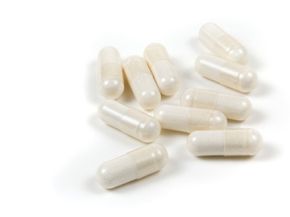Free radicals. It sounds like something they give away at protest rallies. But in your body, they are cells with unpaired electrons that attack other molecules to achieve stability, damaging the DNA of those molecules and spreading disease.
Enter the antioxidant -- compounds the body uses as its defense system to fight free radicals and keep them from setting off chain reactions of cell mutation that can lead to a host of chronic diseases like cancer, heart disease, Alzheimer's and Parkinson's [source: Davis].
Advertisement
One antioxidant getting a lot of attention on the free radical fighting scene is Alpha Lipoic Acid (ALA). Also known as thioctic acid, ALA is naturally produced in the body, as well as absorbed from certain foods we eat, such as red meat, spinach, potatoes, broccoli, yams, carrots, beets and yeast [source: American Cancer Society].
For 20 years, ALA supplements have been used to treat HIV, sciatica, cancer, liver problems, hepatitis, strokes, vascular disease, diabetes, cataracts, glaucoma, multiple sclerosis, burning mouth syndrome and Alzheimer's. Some doctors believe ALA can even help slow the aging process [source: National Toxicology Program].
But because they are not drugs, ALA supplements are not subject to regulation by the Food and Drug Administration. Respected medical journals haven't jumped on the antioxidant bandwagon and more studies are needed to test its effectiveness in humans.
In the following sections, you'll learn about some of the research surrounding ALA and how this antioxidant works in the body, along with its benefits, side effects, and impact on weight loss and peripheral neuropathy -- numbness in the hands and feet.
First, let's investigate how Alpha Lipoic Acid works in your body.
Advertisement

